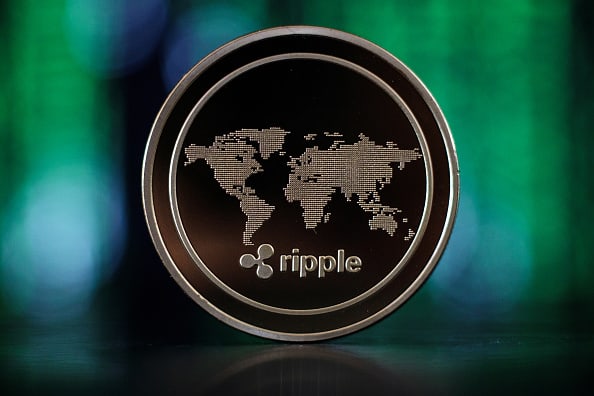$10 billion crypto firm Ripple considers relocating to London over U.S. regulation

In this photo illustration of the ripple cryptocurrency ‘altcoin’ sits arranged for a photograph on April 25, 2018 in London, England.
Jack Taylor | Getty Images News | Getty Images
LONDON — Ripple, the $10 billion financial technology company best known for cryptocurrency XRP, is considering relocating its headquarters overseas due to frustration with the U.S. regulatory environment.
The San Francisco-based firm’s CEO Brad Garlinghouse, who says he visited London only last month, told CNBC that U.K. markets watchdog the Financial Conduct Authority doesn’t deem XRP a security — a key source of contention in its home market. Other regions had provided similar assurances, he added.
“What you see in the U.K. is a clear taxonomy, and the U.K.’s FCA took a leadership role in characterizing how we should think about these different assets and their use cases,” Garlinghouse said.
“The outcome of that was clarity that XRP is not a security and is used as a currency. With that clarity, it would be advantageous for Ripple to operate in the U.K.”
In addition to the U.K., Garlinghouse said Switzerland, Singapore, Japan and the United Arab Emirates were also under consideration for Ripple’s potential move abroad.
“The U.S. is out of sync with other G20 markets and how some of them think about these regulations,” he added.
Chris Larsen, a co-founder and executive chairman of Ripple, first flagged the company’s desire to move its global HQ outside the U.S. in an interview with Fortune magazine earlier this month.
Ripple has been locked in a legal battle with some cryptocurrency investors who accuse it of selling unregistered securities and making misleading statements about XRP. The company disputes the allegations, pushing back on the suggestion XRP qualifies as a security.
Meanwhile, officials at the U.S. Securities and Exchange Commission have said cryptocurrencies like bitcoin and ethereum are not securities that should be regulated in the same way as stocks and bonds. The status of XRP has been shrouded in uncertainty.
The “security” label matters because it could bring XRP under strict new rules — and that could heavily impact Ripple. Though it claims to be independent of the cryptocurrency, Ripple owns 55 billion of the total 100 billion XRP tokens in existence. The company even makes revenue from selling some of its XRP holdings each quarter.
What is XRP?
XRP is the world’s fourth-largest cryptocurrency by market value, according to data from CoinMarketCap. Ripple says it mainly uses the digital asset as a “bridge currency” for its financial services clients to send money overseas quickly and cheaply.
The company works with some of the world’s largest financial institutions, including Santander and American Express. However, those firms do not currently use XRP for settling transactions.
Instead, they use an interbank messaging platform developed by the firm that’s similar to Swift but based on blockchain, the technology that underpins many of the world’s best-known virtual currencies. Ripple’s chief admitted banks were not rushing to use XRP for cross-border payments.
“The biggest banks don’t necessarily see it as big a problem because they already have liquidity everywhere,” he said, adding it will “take longer” to get those larger lenders on board.
Garlinghouse had previously said “dozens” of banks would use its cryptocurrency product, now known as “on-demand liquidity,” by 2019. While it’s won over money transfer services such as MoneyGram and Azimo, Ripple has so far failed to convince big banks to at least announce publicly whether they’re using XRP.
The executive said uncertainty around the legal status of the cryptocurrency could be to blame. “Because of the lack of clarity about some of these regulations, we have customers who don’t want to publicly talk about what they’re doing,” he said.
Another cause for concern for large banks could be the use of cryptocurrencies in illicit transactions. According to blockchain analysis firm Elliptic, $400 million in XRP transactions have been linked to illegal transactions like thefts and scams. For his part, Garlinghouse said Ripple’s own tech couldn’t be used by bad actors.
“We only work with regulated financial institutions,” he said. “You can’t use Ripple’s technology for money laundering or to circumvent any regulation, because our technology is enabling regulated, advanced institutions.”
Ripple was last valued at $10 billion in a $200 million funding round late last year. Founded in 2012, the company rose to fame in late 2017 and early 2018, when the value of XRP skyrocketed past $3. The price of an XRP token today sits at around 26 cents. It is, however, up over 34% since the start of the year.